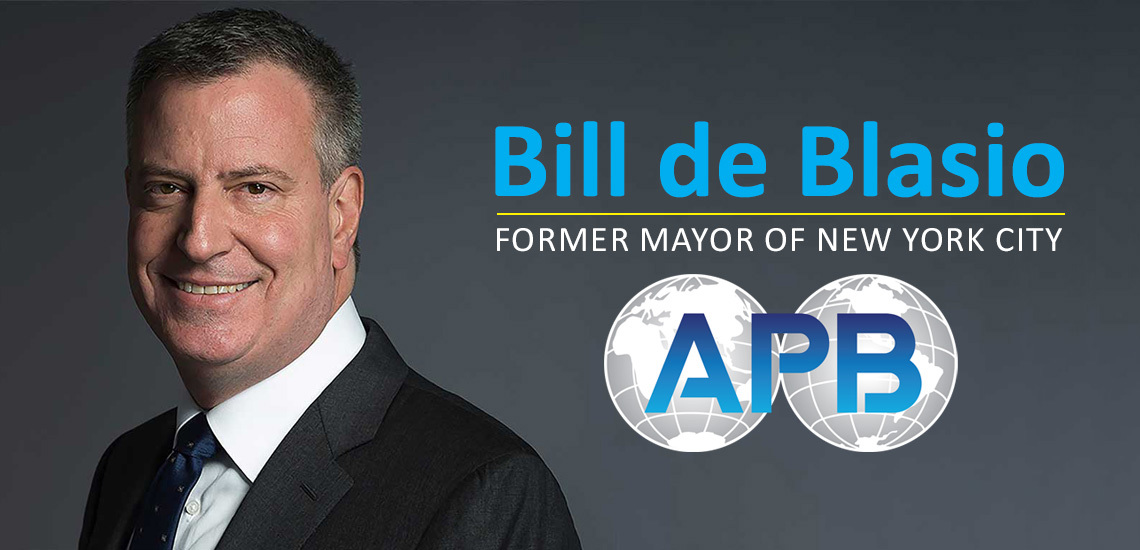Former NYC Mayor Bill de Blasio Joins Harvard’s Institute of Politics as a Fall 2022 Visiting Fellow
13 Sep 2022

It was recently announced that former New York City Mayor and APB exclusive speaker Bill de Blasio has joined The Institute of Politics (IOP) at Harvard Kennedy School in Cambridge, Mass., as a visiting fellow for the fall 2022 semester. De Blasio will visit Harvard several times throughout the semester for a variety of discussions, events and programming.
“I am happy to join the IOP to help inspire our nation’s next generation of leaders to find ways to serve in politics and public service and to build a government that serves working people,” said de Blasio.
“Mayor de Blasio’s decades of experience in local government, federal agencies, national campaigns and running the largest city in the country will provide invaluable insight to our students and the Harvard community,” said IOP Interim Director Setti Warren. “We are excited to welcome Mayor de Blasio to campus as we look for pathways forward on the challenges facing our democracy.”
The 109th Mayor of New York City, de Blasio came into office in 2014 determined to ensure that the city remains a place for everyone. During his two terms as leader of America’s largest city, with more than 400,000 employees and a $100 billion operating budget, de Blasio created a groundbreaking initiative that ensured that early childhood education became a universal right in the five boroughs. The universal Pre-K and 3-K programs in New York City have become a national model.
Also during his tenure, New York City financed the preservation and construction of over 200,000 affordable homes, the most created by any administration in the City’s history. In 2019, de Blasio launched a first-in-the-nation, six-point action plan to end long-term homelessness. “The Journey Home” initiative was designed to increase access to housing and health care in combination with rapid-response outreach efforts for homeless individuals living on the streets.
In fulfilling his campaign promise to end a “tale of two cities,” de Blasio implemented policies that successfully reduced income inequality among New Yorkers and fought alongside them to secure a $15 minimum wage for all workers.
In response to the growing climate crisis, de Blasio and the City Council passed the Climate Mobilization Act (or the New York City Green New Deal) to make the city net-carbon-neutral by 2050, as well as groundbreaking legislation to reduce building emissions and to end fossil fuel use in new buildings.
De Blasio also ended the city’s controversial stop-and-frisk program and worked to bring the NYPD and communities closer together, while at the same time reducing crime rates to a record low. And, most importantly, he was in charge of leading New York City through the COVID-19 pandemic, turning what was once a global epicenter into the safest city in the country with one of the highest vaccination rates.
